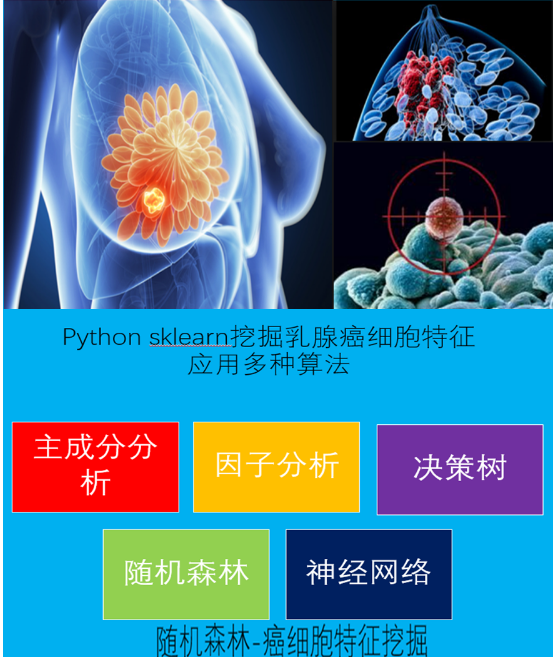- 1Python 基础 — 基础语法_python %name %name
- 290后,转行软件测试3年,从月入7000+到月入过万,整理出的这一万字经验分享。_毕业后第二份工作可以转研发嘛
- 3Unity Lighting Window 属性的序列化与反序列化_unity lightingdata.asset 序列化
- 4深入了解Nginx(一):Nginx核心原理
- 5软件测试—接口测试面试题及jmeter面试题_软件测试面试题接口
- 6STM32+WIFI+MQTT+云Mysql数据上报并转存到云数据库_stm32基于云平台的数据库
- 7【C++】详解深浅拷贝的概念及其区别
- 8使用Git 命令行拉取、提交、推送 代码_git命令行推送
- 9智慧水务大数据平台-智慧水务建设方案_智慧水务平台方案
- 10新朋友+1!拓数派 PieCloudDB Database 与 OpenCloudOS、TencentOS Server 完成产品兼容互认证_opencloudos tencentos server
数据挖掘情感分析python_nltk_28Twitter情感分析模型
赞
踩

生产Twitter情感分析的模型,并保存数据为pickle,此过程可能要一个小时,所以下次调用数据就很简单了
# -*- coding: utf-8 -*-
"""
Created on Thu Jan 12 10:44:19 2017
@author: Administrator
用于短评论分析-- Twitter
保存后的"positive.txt","negative.txt"需要转码为utf-8
在线转码网址
http://www.esk365.com/tools/GB2312-UTF8.asp
features=5000,准确率百分之60以上
features=10000,准确率百分之 以上
运行时间可能长达一个小时
"""
import nltk
import random
import pickle
from nltk.tokenize import word_tokenize
short_pos = open("positive.txt","r").read()
short_neg = open("negative.txt","r").read()
# move this up here
documents = []
all_words = []
for r in short_pos.split('\n'):
documents.append( (r, "pos") )
for r in short_neg.split('\n'):
documents.append( (r, "neg") )
# j is adject, r is adverb, and v is verb
#allowed_word_types = ["J","R","V"] 允许形容词类别
allowed_word_types = ["J"]
for p in short_pos.split('\n'):
documents.append( (p, "pos") )
words = word_tokenize(p)
pos = nltk.pos_tag(words)
for w in pos:
if w[1][0] in allowed_word_types:
all_words.append(w[0].lower())
for p in short_neg.split('\n'):
documents.append( (p, "neg") )
words = word_tokenize(p)
pos = nltk.pos_tag(words)
for w in pos:
if w[1][0] in allowed_word_types:
all_words.append(w[0].lower())
#保存文档
save_documents = open("pickled_algos/documents.pickle","wb")
pickle.dump(documents, save_documents)
save_documents.close()
#保存特征
all_words = nltk.FreqDist(all_words)
#最好改成2万以上
word_features = list(all_words.keys())[:5000]
save_word_features = open("pickled_algos/word_features5k.pickle","wb")
pickle.dump(word_features, save_word_features)
save_word_features.close()
def find_features(document):
words = word_tokenize(document)
features = {}
for w in word_features:
features[w] = (w in words)
return features
featuresets = [(find_features(rev), category) for (rev, category) in documents]
random.shuffle(featuresets)
print(len(featuresets))
testing_set = featuresets[10000:]
training_set = featuresets[:10000]
classifier = nltk.NaiveBayesClassifier.train(training_set)
print("Original Naive Bayes Algo accuracy percent:", (nltk.classify.accuracy(classifier, testing_set))*100)
classifier.show_most_informative_features(15)
#保存分类器
save_classifier = open("pickled_algos/originalnaivebayes5k.pickle","wb")
pickle.dump(classifier, save_classifier)
save_classifier.close()
sentiment_mod.py
# -*- coding: utf-8 -*-
"""
Created on Thu Jan 12 16:47:51 2017
@author: Administrator
"""
#File: sentiment_mod.py
import nltk
import random
import pickle
from nltk.tokenize import word_tokenize
documents_f = open("pickled_algos/documents.pickle", "rb")
documents = pickle.load(documents_f)
documents_f.close()
word_features5k_f = open("pickled_algos/word_features5k.pickle", "rb")
word_features = pickle.load(word_features5k_f)
word_features5k_f.close()
def find_features(document):
words = word_tokenize(document)
features = {}
for w in word_features:
features[w] = (w in words)
return features
featuresets_f = open("pickled_algos/featuresets.pickle", "rb")
featuresets = pickle.load(featuresets_f)
featuresets_f.close()
random.shuffle(featuresets)
print(len(featuresets))
testing_set = featuresets[10000:]
training_set = featuresets[:10000]
open_file = open("pickled_algos/originalnaivebayes5k.pickle", "rb")
classifier = pickle.load(open_file)
open_file.close()
def sentiment(text):
feats = find_features(text)
return classifier.classify(feats)
测试
# -*- coding: utf-8 -*-
"""
Created on Thu Jan 12 16:50:12 2017
@author: Administrator
"""
import sentiment_mod as s
print(s.sentiment("This movie was awesome! The acting was great, plot was wonderful, and there were pythons...so yea!"))
print(s.sentiment("This movie was utter junk. There were absolutely 0 pythons. I don't see what the point was at all. Horrible movie, 0/10"))



